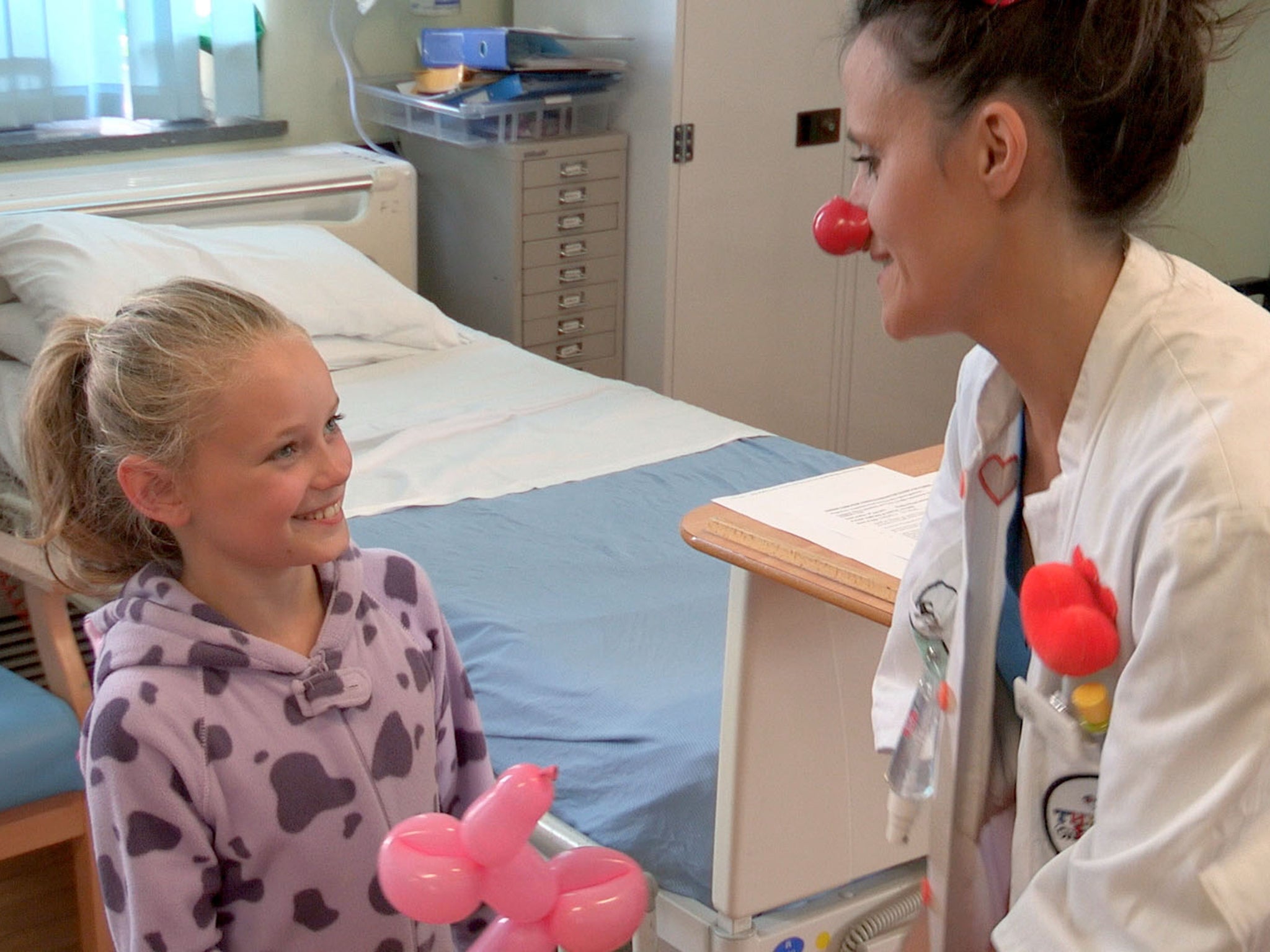Nina Conti: Clowning Around, TV review: Don't call her a clown
What is a “giggle doctor”? The short answer is it’s a clown who tours hospital wards, cheering up sick and disabled children with jokes and tricks

With Comic Relief just past, we’ve had plenty of opportunities to observe performers floundering outside their comfort zones for a good cause. Nina Conti: Clowning Around was different, however. The stand-up and ventriloquist wanted to become a “giggle doctor” in children’s hospitals, but this was no short-term fundraising stunt. It was part of a two-year creative and philanthropic journey, with ups, downs and personal crises all captured on camera.
What is a “giggle doctor”? The short answer is it’s a clown who tours hospital wards, cheering up sick and disabled children with jokes and tricks. Only the giggle doctors at Theodora Children’s Charity, where Conti trained, don’t like to use the dreaded c-word. There is, they explained, a significant section of the population who find clowns creepy and this negative association is affecting fundraising efforts. So “giggle doctor” it is.
Awkwardly, the charity’s identity crisis seemed to coincide exactly with the moment Conti was beginning to appreciate her place in the clowning tradition. Originally, she’d hoped to bring her ventriloquist’s puppet Monkey into hospitals, but this plan was nixed when Monkey fell foul of strict hospital hygiene rules. So Conti threw herself into workshops instead, training under the grand master of clowning, Philippe Gaulier, where she learnt that being a clown is about so much more than oversized shoes and a red nose. One tutor had some particularly good advice: “Don’t be more stupid than you already are, because nature has already made you stupid enough already.”
Ditched from the act, Monkey became Conti’s confidante instead, guiding – and goading – her through the inevitable creative crisis that trying to be funny in such a sad place brought on. As Conti became increasingly inhibited by the anxiety that she might be causing more harm than good, Monkey tried the tough-love approach: “You’re too tense, you’re too nervous, you’re not cut out for this shit, Nina!” We know laughter is the best medicine, but who knew that comedy’s medical ethics could be so tricky?
Subscribe to Independent Premium to bookmark this article
Want to bookmark your favourite articles and stories to read or reference later? Start your Independent Premium subscription today.

Join our commenting forum
Join thought-provoking conversations, follow other Independent readers and see their replies